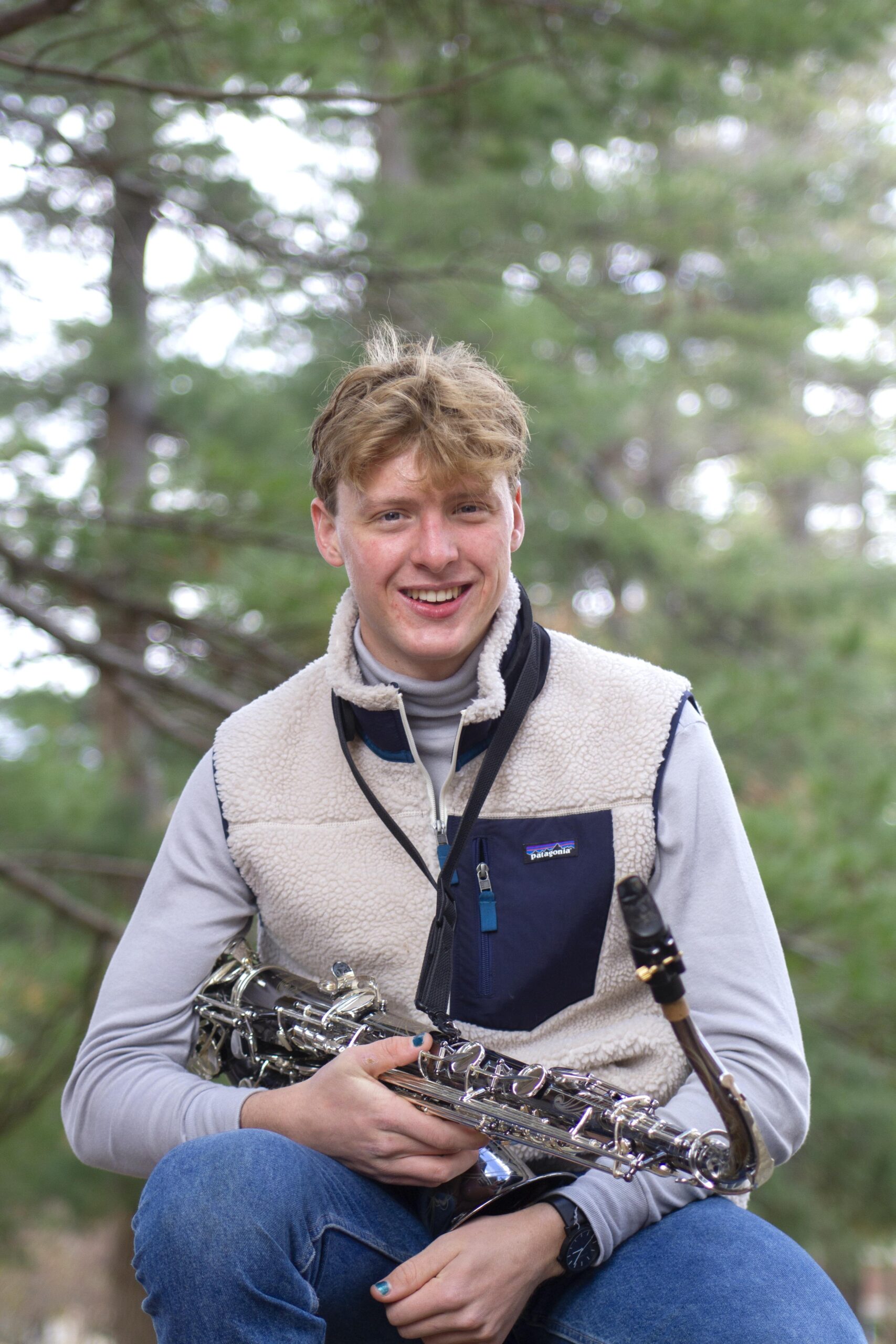Jazz ensembles utilize music software for rehearsals
November 6, 2020
 Amira Oguntoyinbo
Amira OguntoyinboWhile Bowdoin jazz ensembles might not be able to perform synchronously, the dedication of Anthony Gabory, visiting lecturer in the department of music and leader of the ensembles, has provided musicians with another way of staying connected.
The jazz ensemble plays together synchronously over Zoom, but students also send Gaboury recordings of themselves playing their instruments. Using GarageBand and a sequencing program called Logic, he compiles them to mimic what it would sound like if they were playing synchronously. When the ensembles meet together, they discuss the recordings.
“I make a vision of what it would sound like doing it all together,” Gaboury said in a Zoom interview with the Orient. “It’s a different way to communicate.”
Gaboury referred to his experience at Berklee College of Music in Boston when he was developing this remote model. He recalls that Berklee utilized this software even before the coronavirus (COVID-19) pandemic.
“We did a lot of that sort of thing with computer programs [and] notation programs, so I knew it could work,” Gaboury said.
While the ensembles have overcome the logistical challenges of being physically distanced from one another, there are some aspects of playing jazz that cannot be replicated.
“I think the most special thing about jazz is not playing music note for note, perfectly, but having kind of instantaneous, spontaneous moments of creative interaction in which you build off another person’s ideas,” said Peter Littman ’23, tenor saxophonist in one of the ensembles, in a Zoom interview with the Orient. “A lot of those opportunities have been lost to COVID[-19], unfortunately.”
Despite the compromising rehearsal situation, Littman also recognizes the advantages of having an interest in something like jazz during the pandemic.
“When social distancing is a thing and you’re trying to mitigate your contact with other people, having something that you love to do alone, especially as an extrovert, is super crucial for mental health,” Littman said.
Gaboury believes that the remote model might even be better than in-person instruction in some respects. While he could not focus individually on every student in a regular classroom setting without disrupting the flow of class, Zoom allows Gaboury to deliver more personalized attention to his students.
“If I’m just doing a Zoom thing, I focus on one person; I get to know them better,” Gaboury said. “You sort of have more of a personal connection to people and a little bit more in-depth understanding of their personality, how they play and how they react to music.”
Even while remote, Littman feels that he has still been able to grow as a musician and that his ability to do so is in part because of Gaboury’s expertise.
“The level of detail and instruction is still incredibly high,” Littman said. “In terms of my personal playing, I’ve improved quite a bit on my own.”
While both Gaboury and Bowdoin jazz musicians wish that they could be rehearsing on campus, they all remain patient as they try to replicate as close to an in-person ensemble experience as possible.
“It’s an evolving process,” Gaboury said. “You go in, you try stuff, you see how people react to certain things. You sort of modify on the fly.”

Comments
Before submitting a comment, please review our comment policy. Some key points from the policy: